
Do you enjoy camping? Many people do. There are so many benefits that come from this favorite pastime of millions of people around the world. One of the best things about camping is how it helps us be one with Mother Nature and unplug from our busy lives and schedules. However, to get the best of this wonderful experience, it is important to know how to ground a generator when camping.
A generator comes in pretty handy during your camping experience as it is sometimes the only way that you can enjoy electricity while far away from the rest of civilization. Therefore, it is important to take precautions that will improve your experience using the generator and make it safe for you and all your appliances.
Learning about how to ground a generator is an easy process that you can complete in a short time as long as you have the
requirements for set up
Trusted Source
Grounding Requirements for Portable Generators
Portable generators are internal combustion engines used to generate electricity. They are useful when temporary or remote power is needed, and are commonly used during cleanup and recovery efforts following disasters.
www.osha.gov
. In this post, we will discuss how you can ground your generator and other important tips that will help you to get the best from the generator.
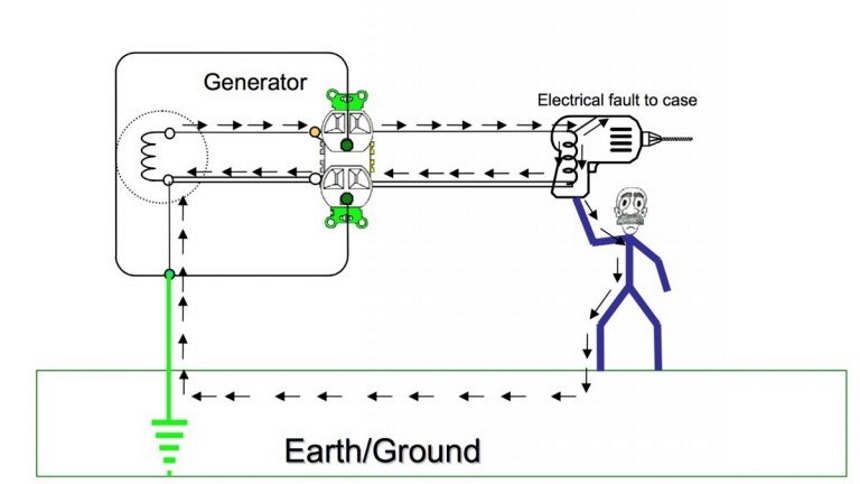
What is grounding? Grounding a generator refers to the process of connecting the generator’s electrical circuit to the ground. Grounding is a process that is carried out, not only on generators but on other things like buildings.
For generators, the metal frame of the generator is the electrical circuit, and a grounding rod is the reference ground. For grounding the generator, you have to connect a copper wire from the frame of the machine to the grounding rod.
Well, it is important because a failure to ground a specified generator can lead to bad things happening. If your generator is one that needs to be grounded and you fail to do so correctly, it can become a fire hazard. If not done well, a short-circuiting can happen which will ignite the fuel in the generator.
Apart from the risk of causing a fire, a failure to ground the generator might also result in a fatal electric shock. Recall that the frame of the generator is the electric circuit. Therefore if the frame were held while the generator was running, it would electrocute the one touching the generator.
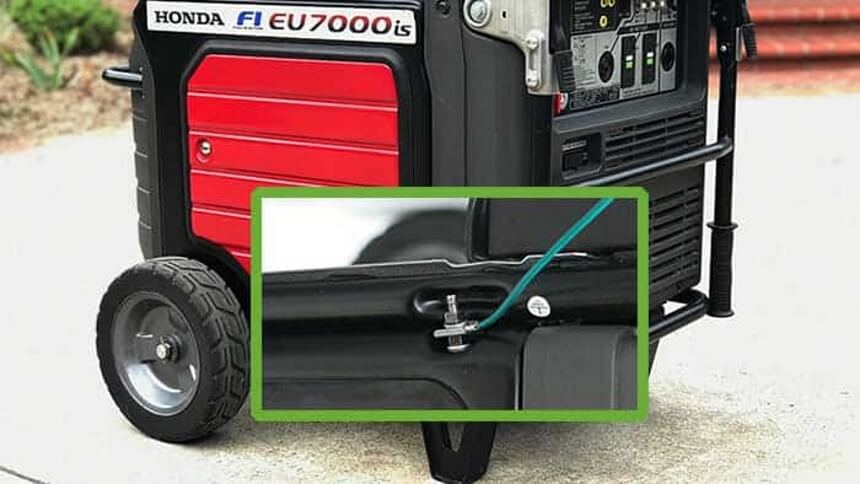
Unfortunately, though, not all portable generators might have the user manual available. You might have left it at home while packing for your trip. If you are in this category, this section will help you to determine whether to ground the generator. Here are some of the tips that will guide you in determining whether to ground the machine:
Well, to know whether your generator is separately derived, check out the transfer switch on the generator. If the model is separately derived, it will come with a switch that is transferable. Therefore, it will require a grounding rod.
Conversely, if the system has a transfer switch that isn’t transferable, it wouldn’t require a grounding rod.
From our research, we observed that most of the portable generators found on the market come with their parts, like the tank, engine, and housing combined with the frame. Therefore, they don’t require grounding.
A large number of modern generators on the market do not require to be grounded. However, several older models need grounding if they are to be used safely.
Now that you have identified whether your generator needs to be grounded and the importance of grounding, it is time to learn how to ground the generator.
To do so, as we pointed out in the introduction, you need to have the necessary tools and equipment. If you have decided to do so yourself, this section will provide a list and discussion of the most important tools.
If DIY isn’t your strong point, then you can hire the services of a professional, though at extra cost. If you do not have all the tools that we have listed below, do not fret. You can always get them at the local hardware store.
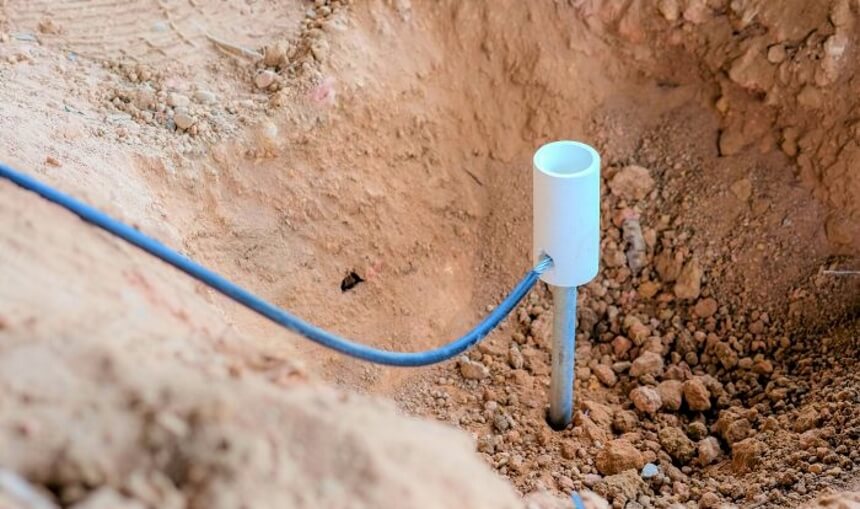
Since you need to drive the grounding rod into the ground, you will need a tool that will let your drive it in. Well, what better tool for this than a tool dedicated to driving nails into the wood – a hammer. This is what you will use to drive in the rod. If you do not have a hammer, you can use a mallet, sledgehammer, or similar tool. When using this tool, you should be careful that you don’t damage the coating of the rod. If the rod is chipped or damaged in some other way, it can cause a poor connection.
The next thing you should get is the copper grounding rod. It is arguably the most important equipment or tool required for the successful grounding of the generator. To that end, ensure that the rod you purchase is of the highest quality and is at least 4 feet long.
Wire strippers are another important piece of equipment to have. These are essential because they are used to strip the ends of the copper wire for proper connection to the electric circuit and the rod. If you do not have these available, you could substitute them with a knife.
Twisting the copper wire around the rod can be done with your hands; however, you can do it even better by using a pair of coppers to tightly fix the wire around the rod.
Up next is the wrench set for the socket. This tool is important as it is what will help you to loosen the bolts on the generator so that you can improve the connection.
With all of these tools in hand, you will find it easier to ground the generator.
Sometimes it might come handy to acquire all of the tools mentioned above as a whole kit, usually they come with the1 drive stud, 3 couplers, 3 3-foot copper rods and the 6 feet of copper wire. But in this case also always remember the matter of the price, because it can turn out that buying a kit will turn out to be more expensive than buying the solitary units.
Now that we have all the necessary tools on hand, we can now show you a systematic way of grounding the generator.
This section shows you the simplest way to ground the generator effectively.

If the soil is soft, you should be able to do this in a short time. However, there are cases where the ground is hard and you might have to break rocks or other hard soil. If you cannot break these up effectively, it would be better to move the generator or rod to another surface that promises softer access.
If the general area is hard, you can soften the ground by pouring some water on the soil and waiting till the soil is softer.
One tip on driving the rod into the hard ground is to angle the rod as you sink it into the ground.
A rule of thumb when sinking the rod is that the deeper you can drive into the earth, the better the grounding.

Do not strip the whole wire since you will still require the unstriped part. Over-striping the wire might be dangerous.
After the stripping, attach the wire to the rod. With the aid of pliers, wrap the end of the wire to the rod and wrap the other end on the frame of the generator.
With the wrench, loosen the grounding bolt and wrap the wire tightly around the grounding bolt before you tighten it.
Use 6 gauge automotive white wire to hook up the negative pole of the battery to the trailer chassis, and the positive pole together with the converter charger have to get connected to the starter motor and the charger connections. Usually all the instructions needed can be found in the manual, but it always a good idea to be consulted by a professional electrician, especially if you are in a situation when you need to connect the outer panel of the generator to the circuit breaker panel inside the trailer.
While portable generators are so convenient, you can still some other sources to get electricity for your camping. In this section, we highlight some of these alternatives.
Solar power has become increasingly popular today. There are now solar panels on the market that will work to power your RV. While they are initially more expensive to acquire and buy, you will not have to refuel the panels. They are also very quiet and will work as long as there is sunlight to power them.
If you are a frequent camper, you will find these to be very handy and cheap in the long run.
Another source of power that people use is rechargeable lithium polymer batteries. These offer an excellent source of power. The downside is that you have to charge them before you head out camping. If they run out of power, you will need a generator or some other source of electricity to charge them.
If you don’t need to power plenty of appliances and only need something to charge your phone or tablets, then you will find these portable batteries to be handy.
These are typical batteries. They are best for small devices and for lighting up the RV. They might not be able to power other appliances in the RV or camp. You can pair these with a portable generator for better performance. Reviews have revealed that the 56200i from WEN is a budget model that offers excellent performance due to the lightweight build and the ability to use it in parallel.
When times are desperate, you could always use the car battery as an alternative source of power. These often come with a 12V connector and will not power powerful appliances.
Grounding is pretty straightforward, but there are dangers. Here are some tips that can help you to remain safe.
If you are a frequent camper, you should look to invest in a portable generator or excellent generators for tailgating. According to reviews, the best portable generator for camping is the P2200 from Briggs & Stratton, due to its smooth power and the ability to use it with sensitive devices that you might use during camping. Several options on the market are powered with different fuels. No matter the one you buy, determine whether it requires grounding or not.
We have shown you how to ground a generator when camping in this article. We hope that it helps you to correctly ground your generator on your next camping trip.

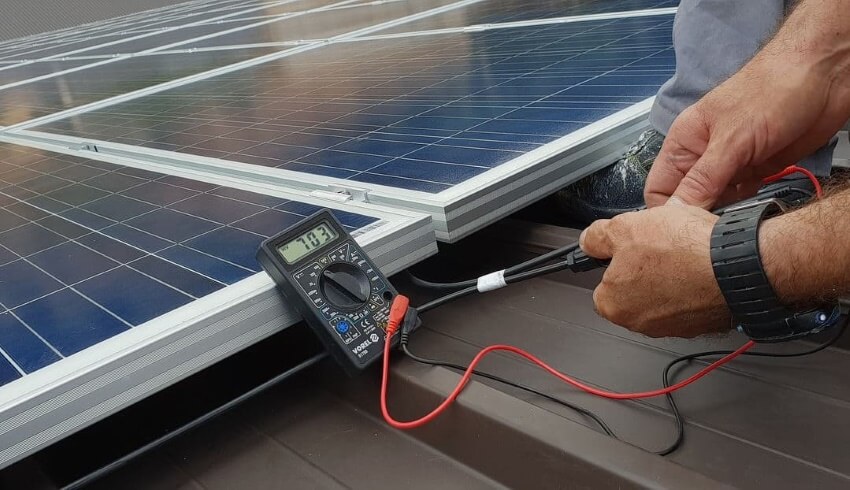
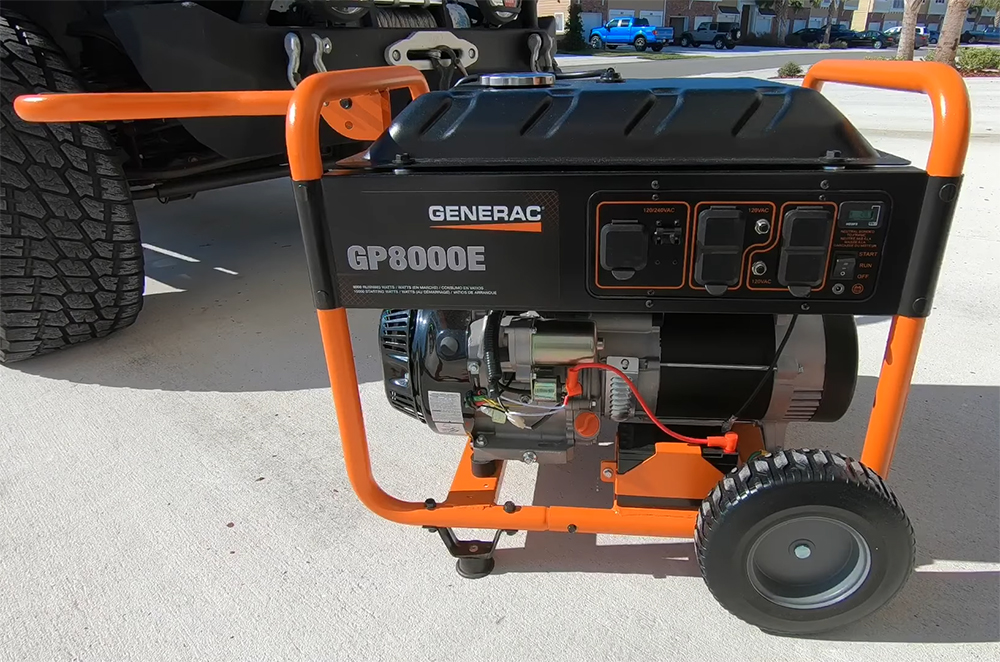
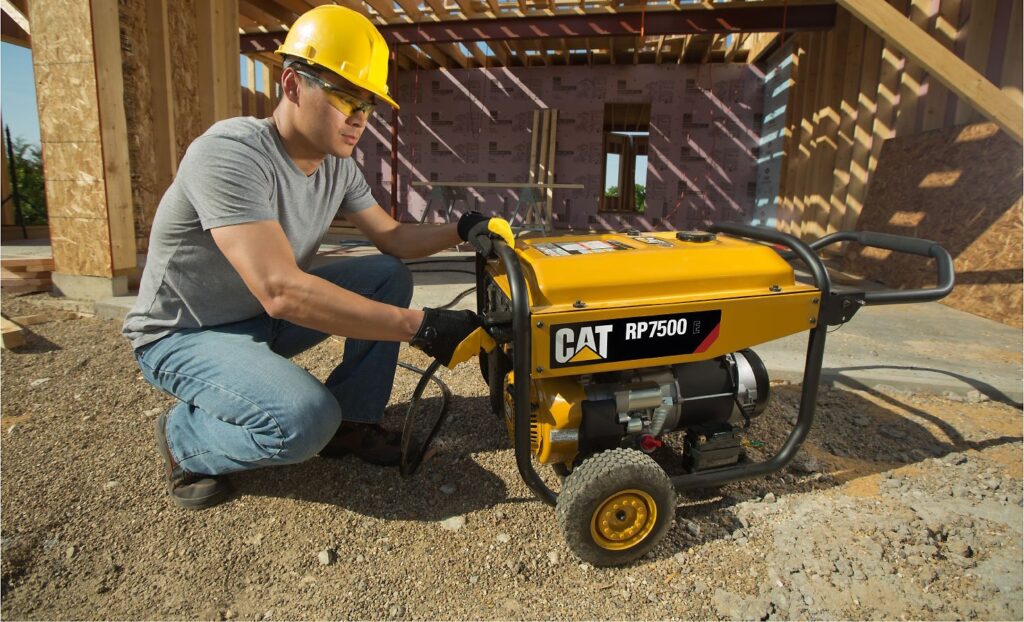

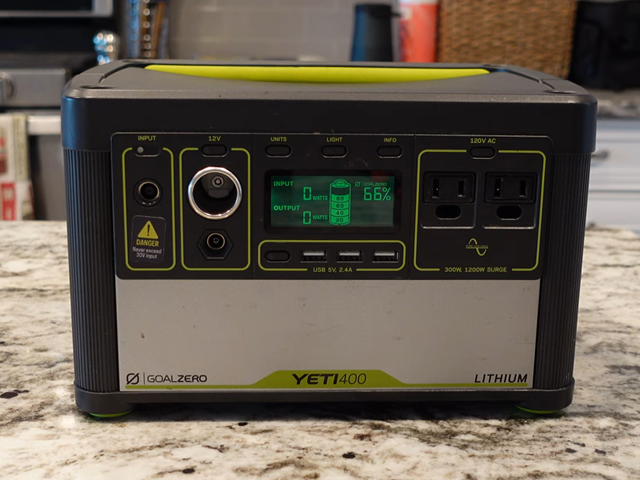
Does anyone know what is the best way to use a car battery to ground a generator when camping? Need to know if it really works.
There are many ways to do this. One way I know is to place the battery in a metal bucket and surround it with sand or gravel. A second way you can do is to place the battery on top of an earth ground rod. Regardless of which strategy you choose, it is important that the car battery be fully charged before use or risk blowing up while grounding your generator.
Please, don’t do it. It’s not advised to use a car battery for grounding. The car battery can drain very quickly when trying to ground the generator and overheat. This can cause it to explode or catch fire, which would cause extensive damage to your surroundings or even your equipment itself. Also, if the voltage of the car was low when you were trying to ground it, then there would be no voltage difference between the vehicle charger and the generator thus no current flow will happen meaning your generator was still on but without power while being grounded through your battery.
Is it so necessary to ground a portable generator when camping?
It’s always a good idea to ground your generator when you are camping. Not only are you protecting your equipment, but you are also protecting the people around you. If the generator is not grounded, it will spike the voltage and this can lead to an electric shock. Think about it
Just interesting, what happens if you don’t ground a generator ? Are there any harmful outcomes?
What does the abbreviation GFCI stand for and what does it mean for grounding?
GFCI stands for ground-fault circuit interrupters. It’s a device that detects ground faults (a type of accidental electric shock) and cuts off power to avoid any shocks or fires. If you’re unsure whether the outlet you are using has a GFCI, then you can check on the side of it. If it says “GFCI Protected”, then you know it has a ground fault circuit interrupter built in to it.
Guys, who can simply explain the real benefits of grounding a generator?
Grounding a generator when camping is a basic principle that saves the machine from potential hazards. An ungrounded generator can develop into a serious fire hazard. It can cause an electrical shock, electrocution, and even death to people in close proximity. Simply said, proper grounding protects you from being harmed by these unpredictable surges.